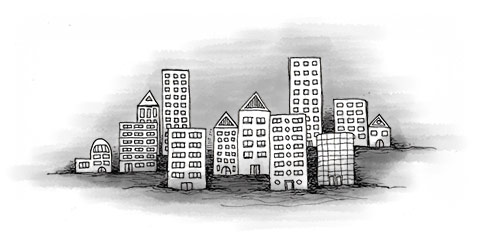Often a tenant of a flat will look for a flatmate to split the rent with, sharing the rent and common areas, such as bathrooms and kitchen (this can work out at €250-400/month).
When it works out well, sharing an apartment can be a good solution, as you can often live in a better location and have more 'living space' than in a single-person flat. If you do not know many people yet, flat-sharing is can be a great way to extend your social life, make new friends and improve your language skills.
The main challenges are to find a place (as always) and to make sure you are going to be able to get along with who you are living with.
Have a good talk with your prospective flatmate/s to make sure your lifestyle expectations match. Conflicts over things like smoking, pets, late-night partying, recreational drug use, the washing up or the state of the bathroom are all easy ways to find yourself in an uncomfortable arrangement. It can be a good idea to agree in advance how things like cleaning, buying household supplies and insurance are going to work before agreeing to move in.
Contracts for shared flats
When sharing rented property, the contract should have all of the names of tenants. If your name is not on the contract, you might not be able to stay there if the other people leave. It often happens that a tenant will offer a sublet without wanting to change the contract. This can be an easy solution as you leave someone else to make sure everything is OK with the landlord, but be aware you could be chucked out at any time!
There are agencies offering a flatshare finding service, such as EasyRoomate. They have many listings from people looking for flatmates and also offer the option to post your own ads. This is a paid subscription service - look under www.appartager.com .
Whether you look for a place to share or for a future roommate, you can also put up a free notice on our housing board.




